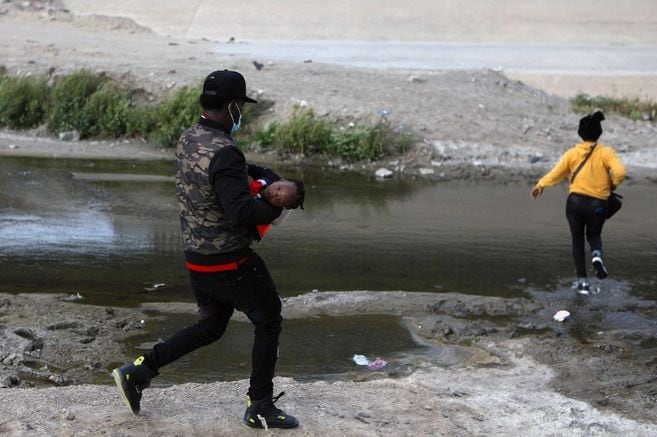
On Friday morning, the Biden government announced a controversial immigration policy change, breaking one of its biggest campaign promises. The president changed his mind again in the afternoon under the influence of criticism. What about migration?
President Joe Biden did not have a good Friday. His abrupt changes in the light of the country’s immigration policy have sparked unrest within his own party and show that the border crisis is getting out of hand as a result of the increase in migration flow.
What happened?
On Friday morning, the Biden administration announced it would set the refugee limit at 15,000, a low left by former President Donald Trump in leaving his administration. In February of this year, the Democratic president remarked with some fanfare that he was going to increase the limit to 62,000 places for refugees. So this decision didn’t keep its word, and worse, it left things the way the former Republican president had done.
The announcement sparked an angry response from human rights defenders and some well-known members of the Democratic Party, such as Representative Ilhan Omar, worth mentioning, was a refugee in a camp in Kenya after fleeing the civil war in Somalia.
“There are simply no excuses for today’s shameful decision,” Omar tweeted.
New York’s representative, Alexandria Ocasio-Cortez, joined the critical voices and stated that this change was “completely and absolutely unacceptable”.
It may interest you: Biden reminds migrants that now is not the time to arrive in the United States.
The Democrats’ anger caused turbulence in the White House, which had to reverse its original decision after a few hours. White House press secretary Jen Psaki released a statement saying that the Biden administration will set the new refugee limit allotment by May 15 next. But while he suggested the new figure would be higher than what former President Trump had, it is unlikely to rise to the number Biden promised in February.
“It is very disappointing that the government chose to leave its predecessor’s embarrassingly low record there,” Krish O’Mara Vgnarajah, president and director of the Lutheran Immigration and Refugee Service, told The Washington Post. Several refugee resettlement agencies and migrant support agencies regretted what had happened and expressed disappointment at the direction the president was taking.
Why did Biden backtrack on his promise?
The migration crisis is already undeniable. The numbers reflect a worrying increase in the arrival of people to the southern border. According to Biden government officials, they have been slow to make strong decisions to contain the crisis or even slow the dramatic rise in refugee applications, leaving some migrants in the dark. At this point, tough action is needed, as this crisis will be the key to the next election match.
In 2022, midterm elections will be held in the country and the Republicans are targeting the current government with everything they have to undermine its popularity and gain ground in the races for seats in the legislature and in key governors.
We advise: Immigration in the Biden Era: Overflowing Promise?
“This reflects the Biden team’s understanding that border flooding will cause record medium-term losses if the Republican Party keeps the issue central,” said Stephen Miller, the architect of Trump’s immigration policy.
With the rise of vaccination and economic recovery, Republicans have only the immigration letter to attack Biden and designate him as the person responsible for a crisis that, while not entirely their responsibility, it is a problem. it is the main character in the drama set in the south today.
Biden is trying to solve the problem on all fronts, and in addition to reconfiguring immigration policy to counter the first quarter numbers, he entrusted his vice president, Kamala Harris, with the task of exploring what the United States can do. do to curb Central. American migration. Harris reported Thursday that he will travel to Mexico and the countries of the Northern Triangle to work with these countries in the migration crisis.
Also see: The Biden government, on the defensive during the first immigration crisis